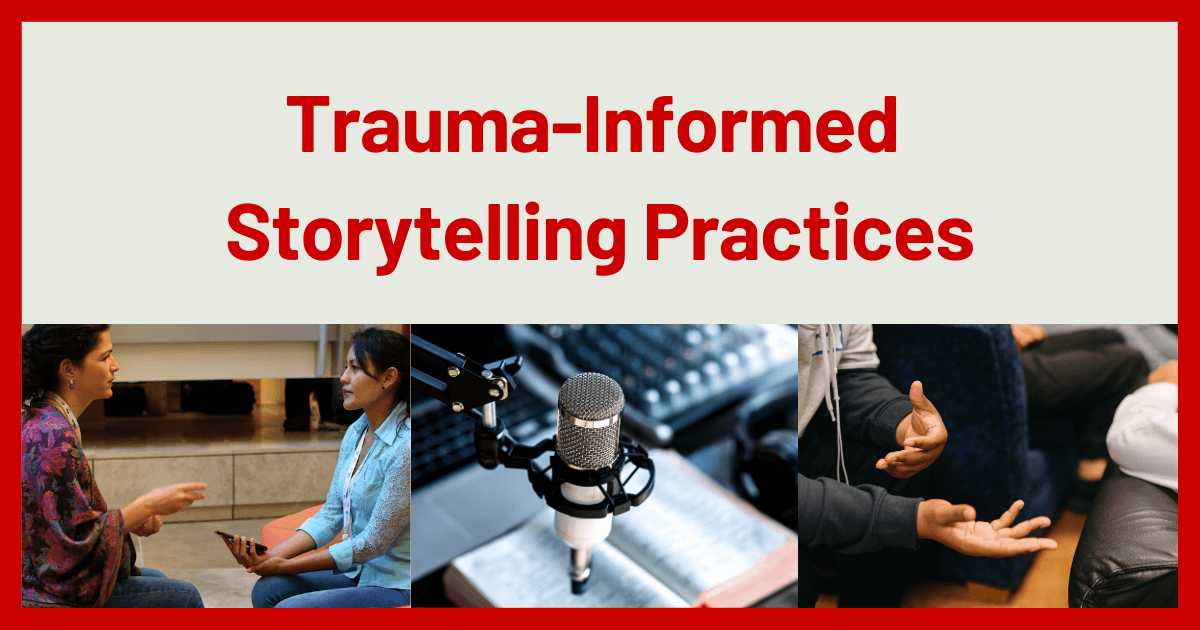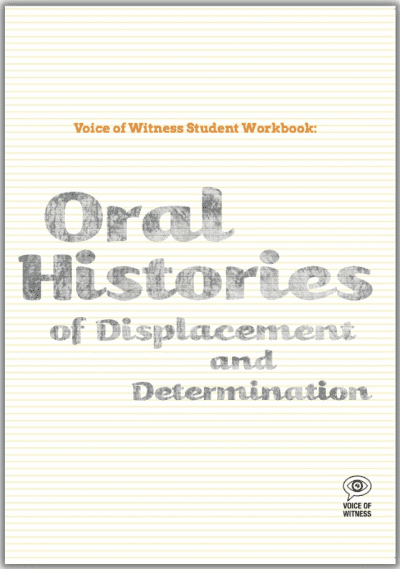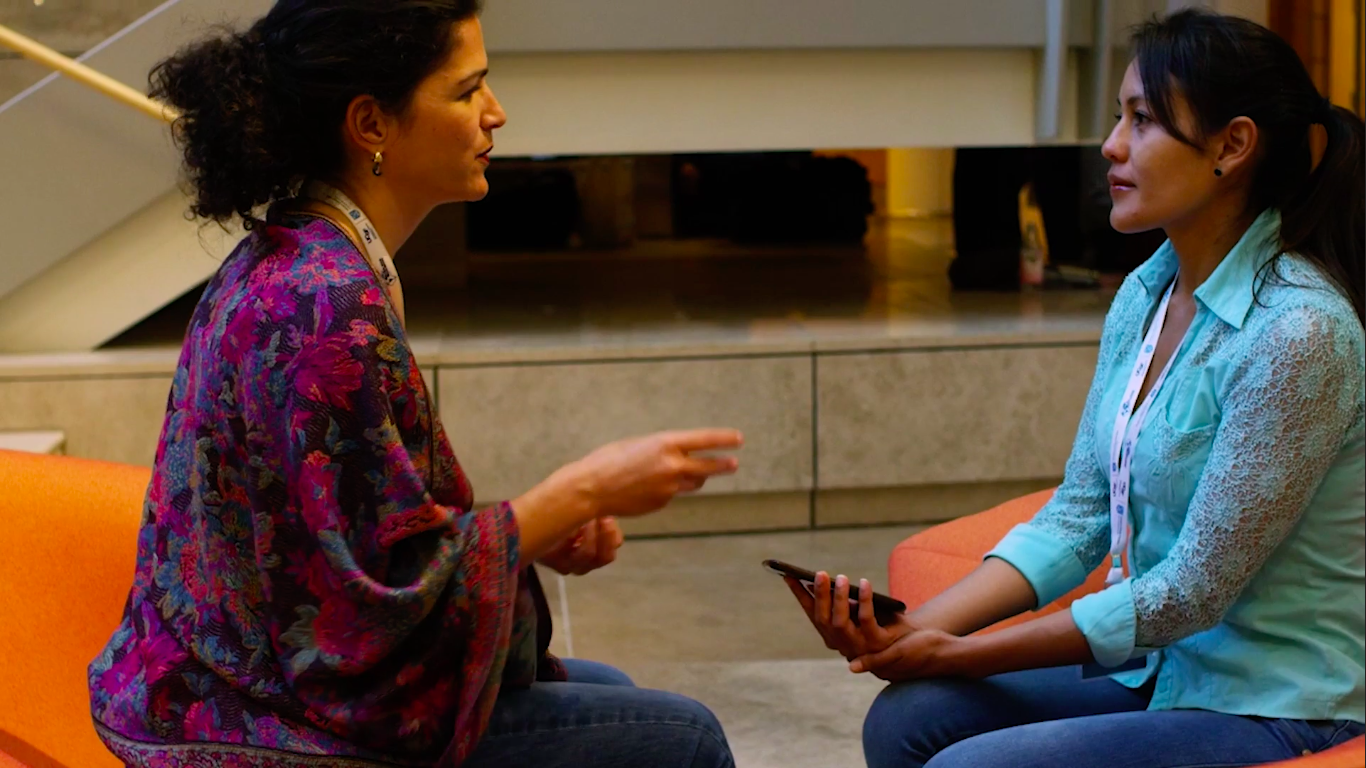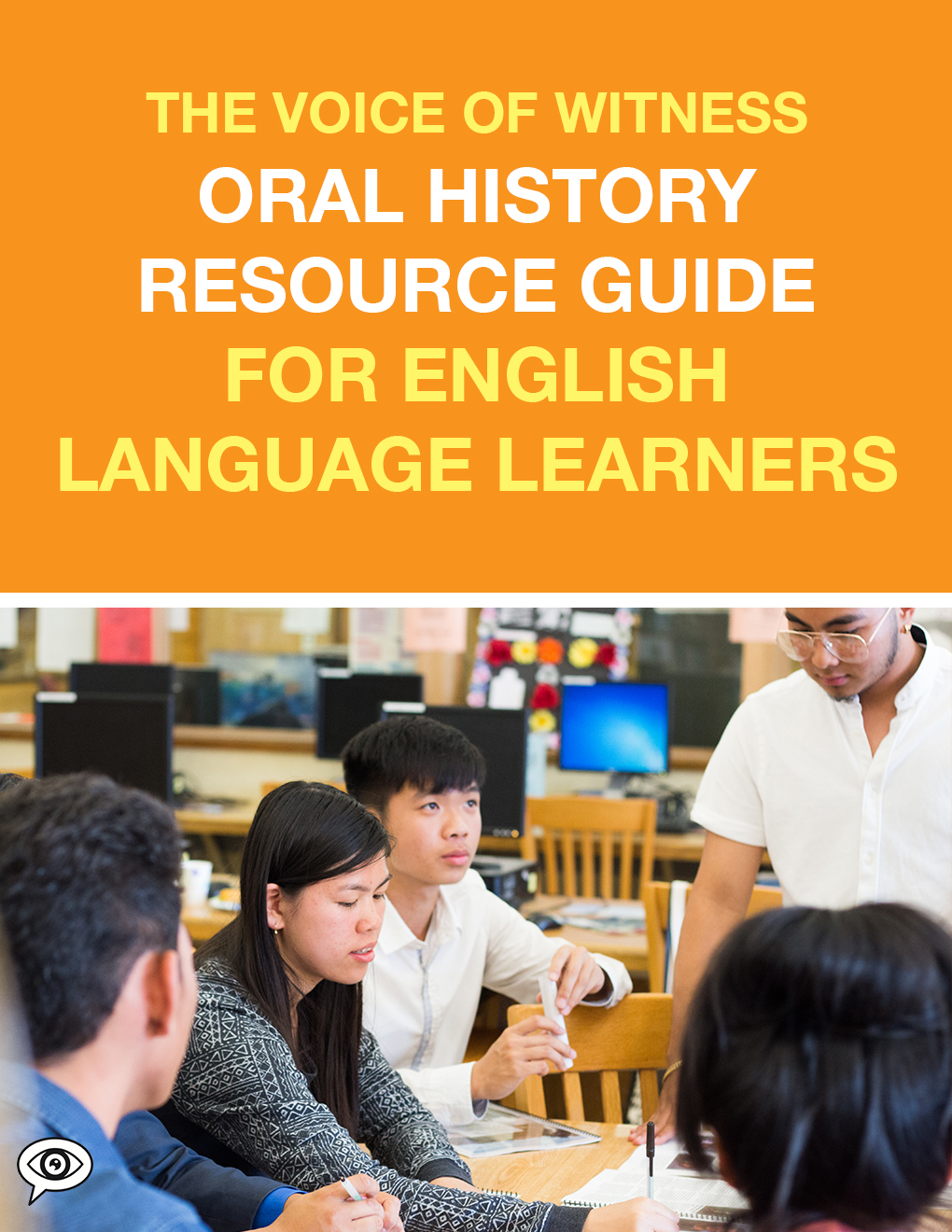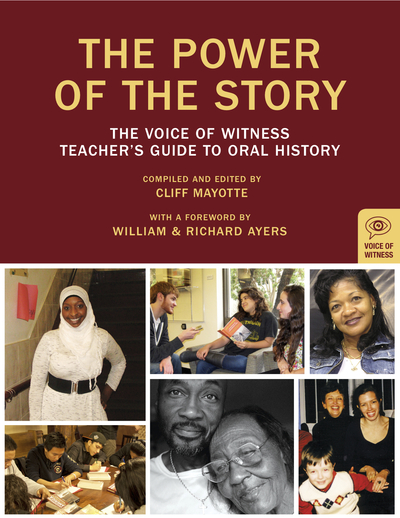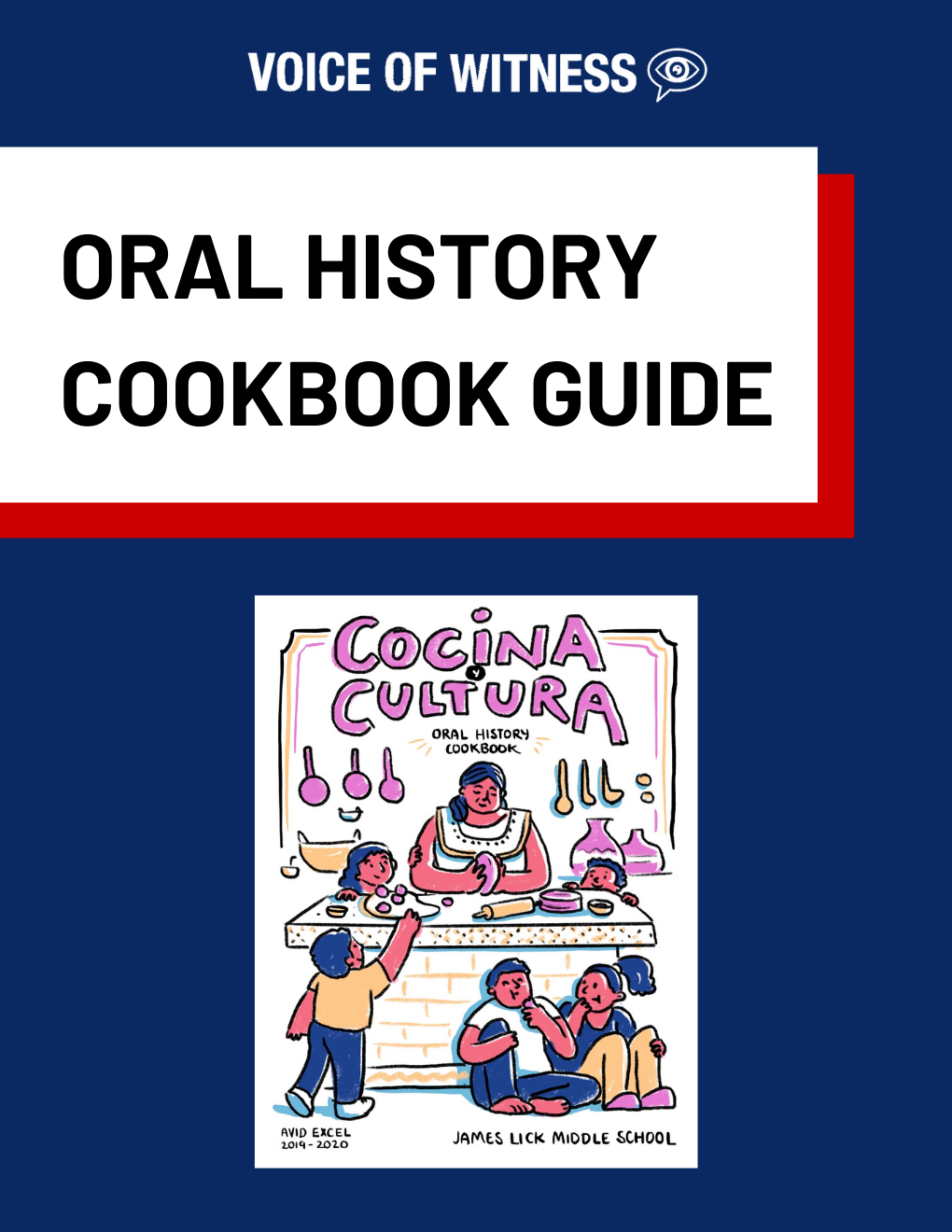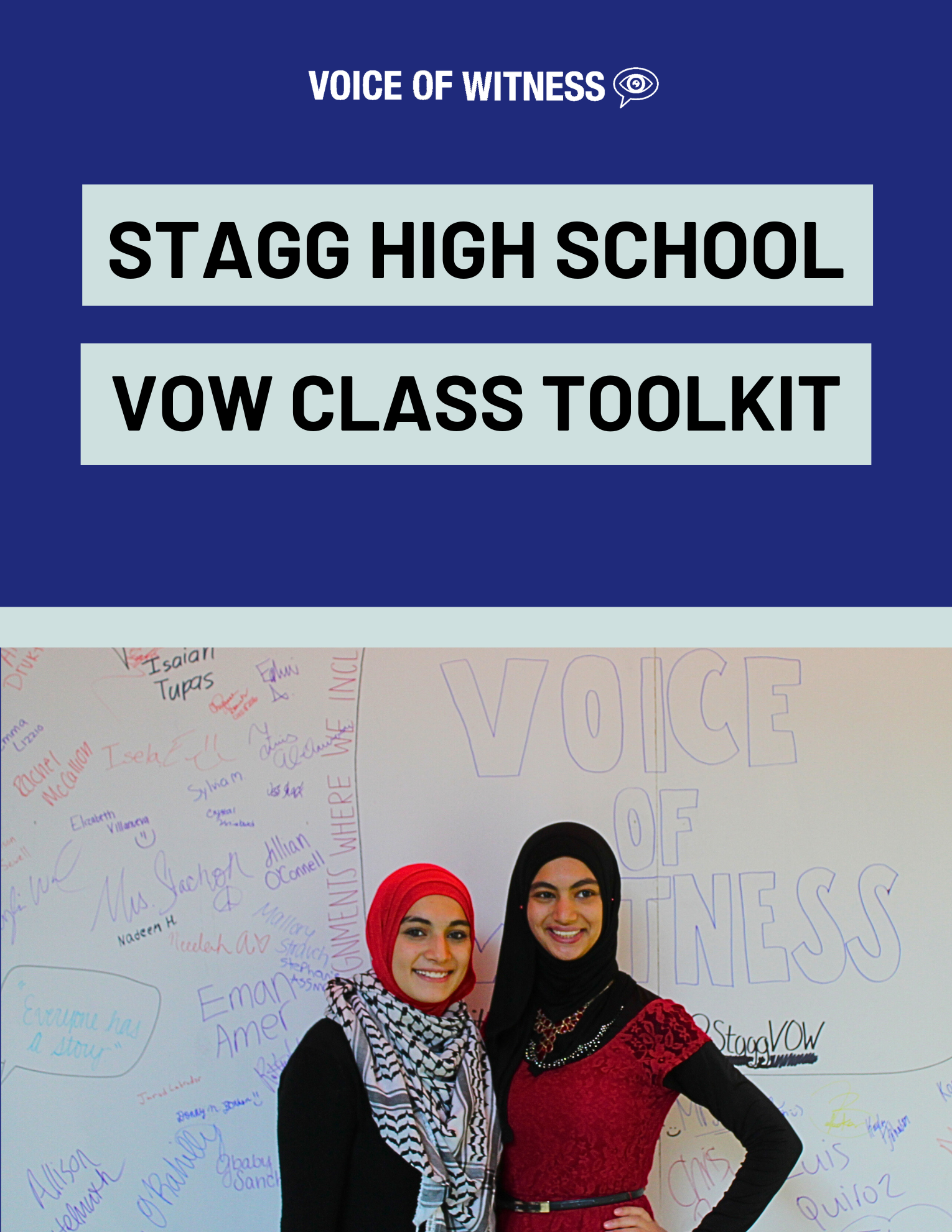Guides and Toolkits
VOW’s Trauma-Informed Storytelling Practices
Here are 10 key trauma-informed practices to create ethical, supportive spaces for storytelling and personal narrative. While our approach is focused on oral history, these principles apply to many types of community-based, interview-based, or relational work.
Voice of Witness Student Workbook: Oral Histories of Displacement and Determination
This VOW Student Workbook features two oral history narratives in an immersive, accessible format. Free lesson plans are also available.
Criminal Justice • Cultural and Personal Identity • English Language Learners • Migration & Displacement • Racial Justice
Oral History Podcast Guide
This guide helps educators create a podcast project for their classroom, where students will conduct and edit oral history interviews.
Benefits of Oral History
What is the value of oral history? This resource page explores the transformative power of oral history-based storytelling and its many applications. Goals and outcomes can include education, advocacy, healing and connection, community building, ethical storytelling, and narrative change.
Oral History Resource Guide For English Language Learners
Voice of Witness’s education program develops curriculum that directly supports students in migrant, multilingual, and English Language Learner communities. This guide contains activities, handouts, and reading strategies to make oral history accessible to students at all language levels.
Cultural and Personal Identity • Education • English Language Learners • Migration & Displacement • Storytelling Best Practices
The Power of the Story: The Voice of Witness Teacher’s Guide to Oral History
This comprehensive guide allows teachers and students to explore contemporary issues through the transformative power of oral history, and to develop the communication skills necessary for creating vital oral history projects in their own communities.
Oral History Cookbook Guide
Creating an oral history cookbook provides students with the opportunity to connect with their own cultural knowledge while building speaking, listening, reading and writing skills. This guide helps educators facilitate an oral history cookbook project.
Stagg High School VOW Class Toolkit
This toolkit shares a collection of high-impact projects and assignments for educators interested in creating their own oral history units or classes.

